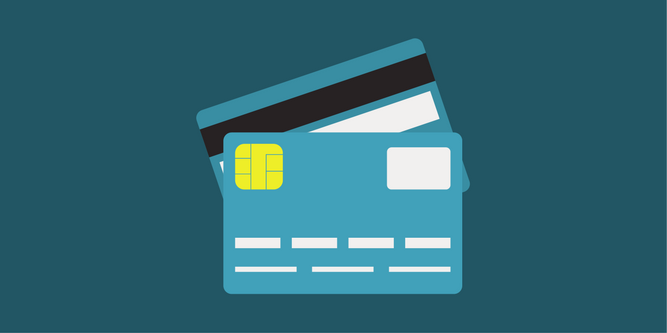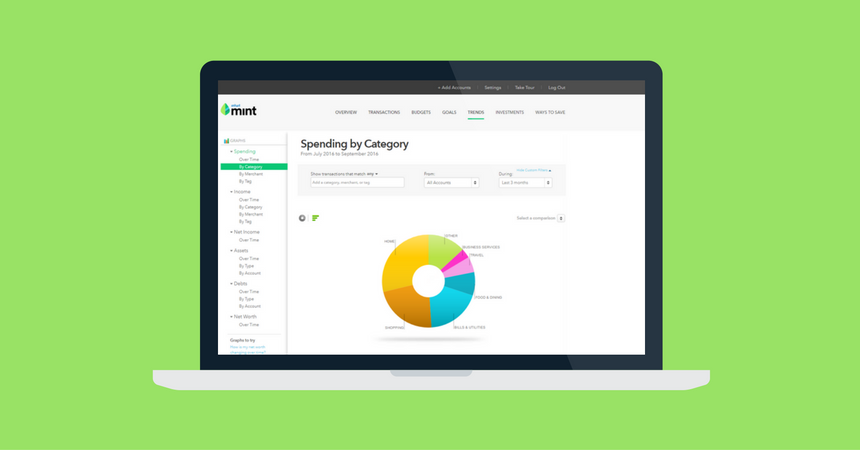
We've all been there. You come home and check your mailbox, and see a stack of credit card offers from Discover, Visa and American Express. You probably get at least four or five a week.
And even though you already have a couple cards, you still open the mail to see what they're offering. In some cases, you probably even consider giving one of them a try because they're offering 0% financing for 12 months.
But then, you sit back and ask yourself, do I really need another credit card?
How many credit cards is too many, and along the same lines, how many should you have before it's considered a problem?
Shouldn’t you have fewer credit cards?
Research shows that 76% of Americans have at least one credit card. And most have at least a couple. This study from Gallup showed that Gen Xers lead the pack with an average of 4.5 credit cards owned. Millennials are at the bottom of the list with 2.4.

An intuitive approach of the matter will lead you to believe that the fewer credit cards you have, the better off you are. Nobody wants to rack up a lot of debt, so it should be a clear and shut case.
But there’s a catch.
As it turns out, the more credit cards you have, the more likely your credit card is going to be better. If you’re going to be relying on the bank to get loans, save money, getting insurance or even getting a job, having a good score is important.
At the same time, having a bunch of credit cards is risky, for obvious reasons.
And just to be clear, credit cards are not a necessity. There are plenty of people who go their entire lives without a credit card. But they can be a helpful financial tool when used responsibly.
And stacking up too much debt as a result of having too many credit cards is one of the biggest mistakes you can make.
So the question is, how do know when you've gone too far? When is it time to say no to extra credit cards?
Signs you may have too many credit cards
1. You Have a High Debt-to-Income Ratio
Debt-to-income ratio is the ratio of all your monthly debt payments to your gross monthly income.
When lenders are evaluating a loan application, this is the primary factor they consider. The number acquired from the formula is used to measure your potential ability to manage the amount you are to pay monthly.
More particularly so, this ratio is calculated as if your credit cards were all in the red to gauge what risk you pose.
To calculate your debt-to-income ratio, add up all your monthly debt payments and divide it by your gross monthly income (before taxes and other deductions). You can also use this handy calculator from Wells Fargo to make it even easier.
The higher your number, the more likely you are a higher risk. If you’re close to or higher than 43%, you’re over the acceptable limit.
Most times, even the 37% - 40% range is considered too high. If you fall within this range, close out some of your unused credit card accounts.
2. You Have a High Credit Utilization.
Credit card utilization is the ratio of how much of your available credit you use against your credit card limits.
For instance, if your credit card balance is $800 and your credit limit is $1,000, then your utilization is 80%.
Simply, it’s the percentage of your balance against your credit card limit, and the lower your utilization, the better.
A low utilization means you only use a small amount of the money that’s been lent to you. This is a good thing in the eyes of lenders, since, to them, it means you’re more likely to pay.
For most institutions, you should have a credit card utilization of less than 30%. However, the lower, the better, and ideally, a number lower than 10% will be best for your credit score.
If you’re in the 30%+ range, you should work on getting that number down by paying off your existing credit cards before getting new ones.
3. You Don't Have Experience With Other Types of Credit
Credit mix is defined as the different types of accounts that make up your credit report. In terms of your FICO score, this contributes for 10% overall.
The different types of credit that might contribute even more to your credit mix include student loans, credit cards and other debts you may have accrued. It has a much higher impact if you don’t provide other information regarding your credit.
Despite the fact that credit mix will positively impact your credit score, common sense should warn you against taking a loan simply to achieve that goal.
In fact, FICO guarantees that it definitely will not.
Credit score isn’t black and white. A lot of unique factors are used in order to come up with your risk potential. The different types of accounts you have in your credit file determine your credit experience.
In this case, the more credit cards you have relative to the absence of other types of credit puts you in a higher risk category. However, since it will account for only 10%, it’s not such a major factor.
4. You Have Difficulty Managing Your Credit Cards
One of the surest indicators that you have too many credit cards is when you’re unable to handle the ones you currently have.
Since they play such a huge role in your life, you need to track your credit cards. This includes keeping check of how much you spend each month and how much time it takes you to pay them back. In the process, remember to keep in mind the interest rates, fees and extra charges.
One of the easiest ways to know whether you’re overboard on the debt train is if you spend more than you make.
Living above your means is the number one way to max out your credit and negatively affect your credit score.
Pragmatically speaking, it’s much easier to handle your credit cards when there are fewer of them. For the average American, between one and three should be enough. However, this depends on a variety of factors and cannot boil down to a single factor.
Still, it becomes nearly impossible to manage your credit cards once they exceed five for most people, assuming you have a balance on all of them.
Alternatively, if you’re only paying the minimum payment on your credit cards, you’re also likely handling your debt all wrong. It’s both the slowest way to pay off your credit and the most expensive since you'll end up paying a lot more in interest.
Do you have too many credit cards?
With all these factors in mind, you should be able to properly diagnose yourself and place yourself in a risk group.
It may not be as accurate as the numbers provided by FICO, but it should be a good indicator that you need to cut down on your credit utilization. Your credit history indicates how safe an investment you are when the bank gives you a loan or credit card.
A great rule of thumb for people new with credit cards is that one is enough. Once you’re used to managing single credit sources, you’ll have better chances with handling more.
Experience is the best teacher when it comes to debt. Once you’re able to ramp up your credit score and increase your income, you can consider getting additional credit cards if necessary.
Even then, think carefully about your ability to pay for extra credit cards. If your ability to manage multiple cards spirals out of controls, that’s a sure sign you have too many credit cards.



